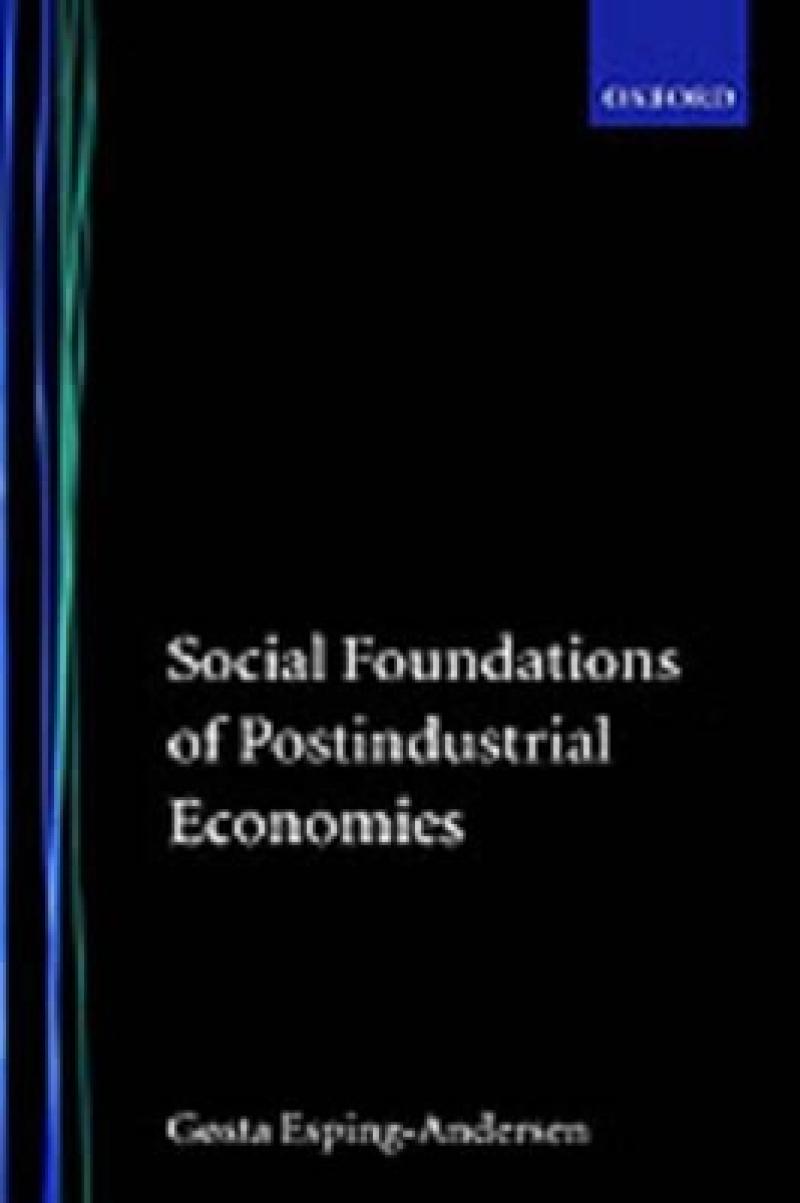well worth reading as a highly informative analysis of the diversity of the social foundations of postindustrial economies.
Andrew Sayer, Progress in Human Geography 24,3.
The book provides a wealth of interesting statistical information and analysis.
Andrew Sayer, Progress in Human Geography 24,3.
The Golden Age of postwar capitalism has been eclipsed, and with it seemingly also the possibility of harmonizing equality and welfare with efficiency and jobs. Most analyses believe that the emerging postindustrial society is overdetermined by massive, convergent forces, such as tertiarization, new technologies, or globalization, all conspiring to make welfare states unsustainable in the future.
Social Foundations of Postindustrial Economies takes a second, more sociological and more institutional, look at the driving forces of economic transformation. What, as a result, stands out is postindustrial diversity, not convergence. Macroscopic, global trends are undoubtedly powerful, yet their influence is easily rivalled by domestic institutional traditions, by the kind of welfare regime that, some generations ago, was put in place. It is, however, especially the family economy that hold the key as to what kind of postindustrial model will emerge, and to how evolving tradeoffs will be managed.
Twentieth-century economic analysis depended on a set of sociological assumptions that, now, are invalid. Hence, to better grasp what drives today's economy, we must begin with its social foundations.
Les mer
The Golden Age of postwar capitalism has been eclipsed, and with it seemingly also the possibility of harmonizing equality and welfare with efficiency and jobs. In his first major book since The Three Worlds of Welfare Capitalism, Europe's leading analyst of the welfare state presents a provocative examination of postindustrial economies at the end of the twentieth century.
Les mer
1. Introduction ; PART ONE: VARIETIES OF WELFARE CAPITALISM ; 2. The Democratic Class Struggle Revisited ; 3. Social Risks and Wefare States ; 4. The Household Economy ; 5. Comparative Welfare Regimes Re-examined ; PART TWO: THE NEW POLITICAL ECONOMY ; 6. The Structural Bases of Postindustrial Employment ; 7. Managing Divergent Employment Dilemmas ; PART THREE: WELFARE CAPITALISM RECAST? ; 8. New Social Risks in Old Welfare States ; 9. Recasting Wefare Regimes for a Postindustrial Era ; Bibliography
Les mer
`well worth reading as a highly informative analysis of the diversity of the social foundations of postindustrial economies.'
Andrew Sayer, Progress in Human Geography 24,3.
`The book provides a wealth of interesting statistical information and analysis.'
Andrew Sayer, Progress in Human Geography 24,3.
Les mer
Gosta Esping-Andersen is Professor of Comparative Social Systems at the University of Trento, Italy
Produktdetaljer
ISBN
9780198742012
Publisert
1999
Utgiver
Vendor
Oxford University Press
Vekt
461 gr
Høyde
242 mm
Bredde
163 mm
Dybde
17 mm
Aldersnivå
P, 06
Språk
Product language
Engelsk
Format
Product format
Innbundet
Antall sider
218
Forfatter
